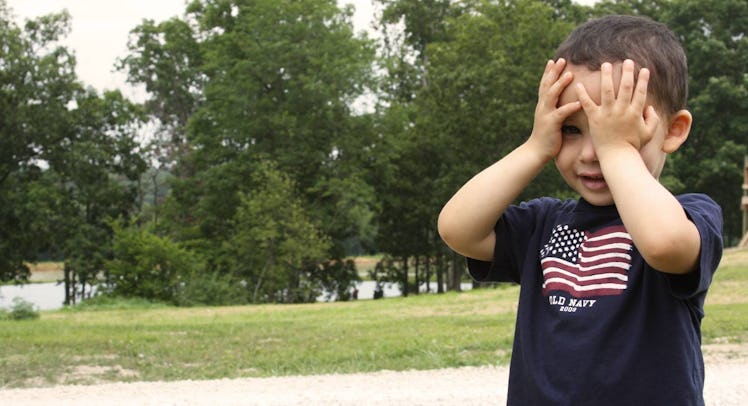Why Your Kid Thinks Covering Their Eyes Makes Them Invisible
Out of sight, out of mind.

When it comes to playing hide-and-seek in your house, they call you The Seeker, but only because your kid isn’t exactly the World Champion of hiding. It’s not their fault, their tiny brain is to blame and for so long psychologists have theorized that children are egocentric munchkins who can’t distinguish their perspective from anyone else’s. (Translation: If they can’t see, no one can.) But new research published in the Journal Of Cognition And Development suggests that their reasoning may be a bit more nuanced than that.
The study looked and the responses of 3 and 4 year olds when researchers talked to them covering their eyes, but as well as their mouth and ears. Interestingly, kids reported not being able to see experimenters even when it was the experimenter’s eyes who were covered, not the kids’. And this also extended to speaking and hearing, and when researchers covered their own ears and mouths youngsters reported the same negative responses. While this was a relatively small sample size of 24 children, they confirmed their results with a follow up experiment to ensure that subjects fully understood the initial questions. And to think all this time you were telling them “ear muffs” when you could’ve just covered your own.
Experts suspect that to kids, it all comes down to reciprocation. “Children expect and strive to create situations in which they can be reciprocally involved with others,” Henrike Moll and Allie Khalulyan co-authors of the study wrote in The Conversation. If this theory holds up, the next time it’s your turn to hide covering your eyes should be as good as getting stuck under the bed … again.
[H/T] The Conversation